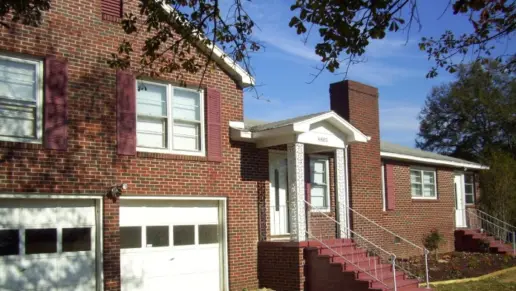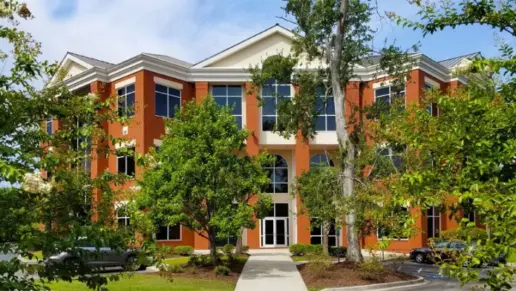My wife was really stressing on her DUI class, and what it would entail, cost wise, plus juggling work and other obligations. The process was efficient, affordable and worry free. Thanks, now we can rest easy!
About Sumter Behavioral Health Services
Carolina Health Systems in Sumter South Carolina provides services for mental health and substance use. The facility focuses on individualized treatment and specialized care tailored to meet personal demands. One such option is the Intensive Outpatient Program (IOP) where patients receive very structured therapy and counseling while still being able to be at home.
Another critical service they offer is the Intervention Program. This program serves to educate clients and their families on the potential consequences of substance abuse and is a step toward individuals seeking help on their own for treatment. They also have a medication-assisted treatment (MAT) Program specifically designed for patients battling opioid addiction. Medications are used in conjunction with counseling to address withdrawal symptoms and cravings, enabling the participants to concentrate on their recovery.
Sumter Behavioral Health Services Substance Abuse Professional (SAP) program is designed to assist employees with substance use problems in safety sensitive positions. They’ll get the treatment needed to recover but in an environment that will guarantee they continue to follow federal and state guidelines.
The Women’s Residential Program provides a supportive environment with more structure and support than traditional outpatient. It is focused on healing specifically for women who seek a more immersive healing milieu. This program offers Women in Recovery services to cope with the unique challenges women face in addiction and recovery and offers comprehensive care.
The center also provides dual diagnosis treatment through its Mental Health and Co Occurring Substance Abuse Programs. These programs integrate mental health care with substance use treatment. This two pronged approach guarantees holistic and psychospiritual treatment of people.
Rehab Score
Other Forms of Payment
Private insurance refers to any kind of healthcare coverage that isn't from the state or federal government. This includes individual and family plans offered by an employer or purchased from the Insurance Marketplace. Every plan will have different requirements and out of pocket costs so be sure to get the full details before you start treatment.
Self-pay involves paying for treatment out of your own pocket. You can use savings or credit, get a personal loan, or receive help from family and friends to fund your treatment. If you don't have insurance or your insurance plan doesn't cover a specific program, self-pay can help ensure you still get the care you need.
Financial aid can take many forms. Centers may have grants or scholarships available to clients who meet eligibility requirements. Programs that receive SAMHSA grants may have financial aid available for those who need treatment as well. Grants and scholarships can help you pai for treatment without having to repay.
Sliding scale payments are based on a client's income and family size. The goal is to make treatment affordable to everyone. By taking these factors into account, addiction recovery care providers help ensure that your treatment does not become a financial burden to you or your family, eliminating one barrier to care.
Medicare is a federal program that provides health insurance for those 65 and older. It also serves people under 65 with chronic and disabling health challenges. To use Medicare for addiction treatment you need to find a program that accepts Medicare and is in network with your plan. Out of pocket costs and preauthorization requirements vary, so always check with your provider.
Military members, veterans, and eligible dependents have access to specific insurance programs that help them get the care they need. TRICARE and VA insurance can help you access low cost or no cost addiction and mental health treatment. Programs that accept military insurance often have targeted treatment focused on the unique challenges military members, veterans, and their families face.
Medicaid is a state based program that helps lower-income individuals and families pay for healthcare. Medicaid covers addiction treatment so those enrolled can use their coverage to pay for rehab. When a program accepts Medicaid the client often pays very little or nothing out of their own pocket.
Addiction Treatments
Levels of Care
Treatments
The goal of treatment for alcoholism is abstinence. Those with poor social support, poor motivation, or psychiatric disorders tend to relapse within a few years of treatment. For these people, success is measured by longer periods of abstinence, reduced use of alcohol, better health, and improved social functioning. Recovery and Maintenance are usually based on 12 step programs and AA meetings.
Choosing a drug rehab in South Carolina helps you overcome drug dependency, learn how to manage cravings, and obtain the tools needed to prevent relapse. This is accomplished through individualized treatment that addresses a full spectrum of physical, social, and emotional needs.
Many of those suffering from addiction also suffer from mental or emotional illnesses like schizophrenia, bipolar disorder, depression, or anxiety disorders. Rehab and other substance abuse facilities treating those with a dual diagnosis or co-occurring disorder administer psychiatric treatment to address the person's mental health issue in addition to drug and alcohol rehabilitation.
Opioid rehabs specialize in supporting those recovering from opioid addiction. They treat those suffering from addiction to illegal opioids like heroin, as well as prescription drugs like oxycodone. These centers typically combine both physical as well as mental and emotional support to help stop addiction. Physical support often includes medical detox and subsequent medical support (including medication), and mental support includes in-depth therapy to address the underlying causes of addiction.
Substance rehabs focus on helping individuals recover from substance abuse, including alcohol and drug addiction (both illegal and prescription drugs). They often include the opportunity to engage in both individual as well as group therapy.
Programs




Clinical Services
The main basis of cognitive behavioral therapy in South Carolina is that all your thoughts, feelings, and behaviors are interconnected. Therefore, the therapist will help you change your thoughts, which will lead to different emotions and actions.
Group therapy is any therapeutic work that happens in a group (not one-on-one). There are a number of different group therapy modalities, including support groups, experiential therapy, psycho-education, and more. Group therapy involves treatment as well as processing interaction between group members.
Individual Therapy is a planned face-to-face intervention that is often useful in assisting the client in improving their emotional and behavioral functioning. Client’s unique stressors are often generational in nature and immensely extensive and affect their families as well as themselves. Individual therapy can enhance the client’s capacity to identify maladaptive behaviors and cognitions allowing them to identify more appropriate alternatives. They will learn to utilize new strategies to make beneficial lasting lifestyle changes which help to promote more adaptive behaviors.
Trauma therapy addresses traumatic incidents from a client's past that are likely affecting their present-day experience. Trauma is often one of the primary triggers and potential causes of addiction, and can stem from child sexual abuse, domestic violence, having a parent with a mental illness, losing one or both parents at a young age, teenage or adult sexual assault, or any number of other factors. The purpose of trauma therapy is to allow a patient to process trauma and move through and past it, with the help of trained and compassionate mental health professionals.
Whether a marriage or other committed relationship, an intimate partnership is one of the most important aspects of a person's life. Drug and alcohol addiction affects both members of a couple in deep and meaningful ways, as does rehab and recovery. Couples therapy and other couples-focused treatment programs are significant parts of exploring triggers of addiction, as well as learning how to build healthy patterns to support ongoing sobriety.
Chemically dependent families have a unique system that seeks to provide stability in spite of drug usage. Understanding the family system, its roles, rules, and structure allows participants to understand how their addiction has affected their loved ones. It will help everyone recognize and understand the changes within the family as everyone adapts. Group interaction with family participation can develop an understanding that chemical dependency of any member of the family, indicates family pain and is not solely experienced by the chemically dependent person.
The purpose of the Psychosocial Rehabilitative Services (Life Skills) face-to-face service is to assist the client in the restoration or strengthening of skills needed to promote and sustain independence and stability in their living, learning, social and work environments.
Amenities
-
Private Setting
Accreditations

The Commission on Accreditation of Rehabilitation Facilities (CARF) is a non-profit organization that specifically accredits rehab organizations. Founded in 1966, CARF's, mission is to help service providers like rehab facilities maintain high standards of care.
CARF Accreditation: Yes
Contact Information
115 North Harvin Street
3rd Floor
Sumter, SC 29150


